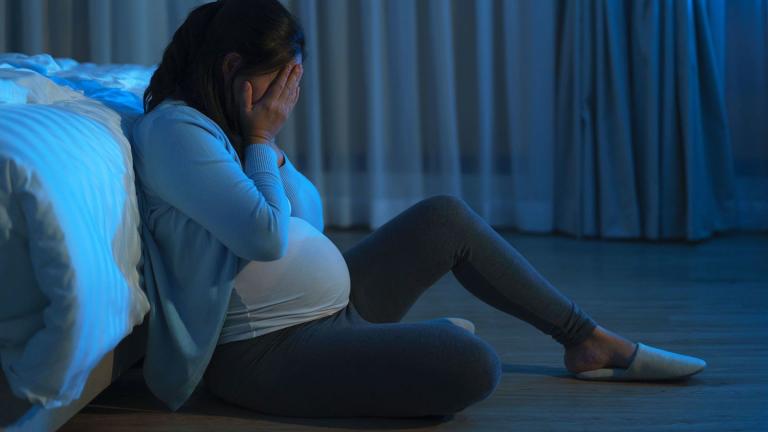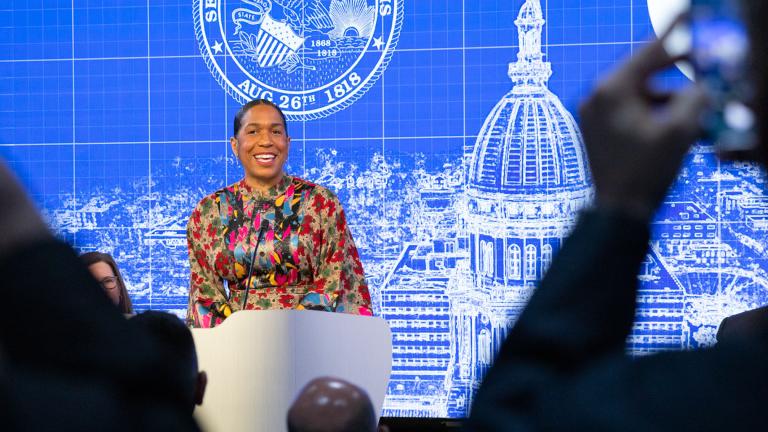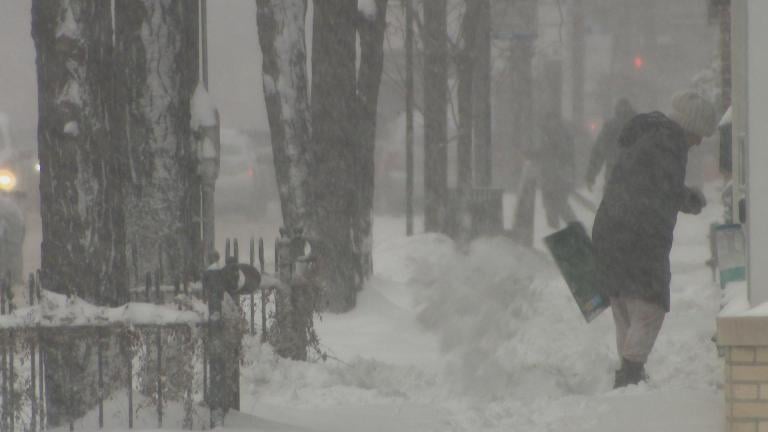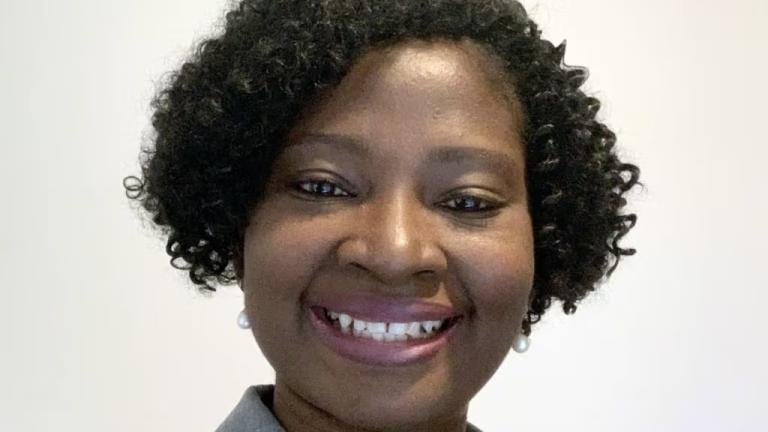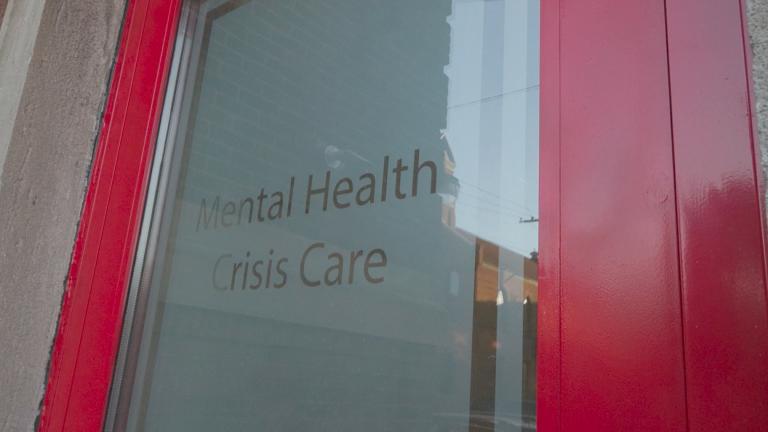More than a decade ago, all 50 members of the Chicago City Council voted to endorse then-Mayor Rahm Emanuel’s proposal to shutter six of the city’s 12 mental health clinics to help close a massive budget deficit, triggering vehement protests and national attention.
That 2011 decision rippled through not only Emanuel’s 2015 bid for reelection, but also the 2019 contest to elect his successor. In 2023, the issue is once again center stage during the race for Chicago mayor, fueled in part by the lessons of the COVID-19 pandemic, which shone a harsh spotlight on the citywide need for robust and affordable mental health care, as well as continuing concerns about the violence that can erupt when people in crisis call Chicago police for help.
That has turned the race into a referendum on Mayor Lori Lightfoot’s decision to break her 2019 campaign promise to reopen the clinics closed by Emanuel. Instead, Lightfoot worked to fill “significant gaps” in Chicago’s mental health care system by turning to nonprofit organizations to deliver needed care.
A majority of candidates hoping to oust Lightfoot from City Hall’s fifth floor office have pledged to reopen public mental health clinics and expand efforts to respond to calls for help not just with police officers, but also with social workers and counselors. While the candidates have differing plans, none have backed Lightfoot’s approach.
While Lightfoot said her plan has shown “tremendous results,” her refusal to reopen the mental health clinics has become a rallying cry for progressive candidates and groups determined to deny her a second term.
“There was a lot of conversation about reopening the mental health clinics,” Lightfoot said on Jan. 8, during a candidate forum hosted by Access Living, a nonprofit group focused on helping people who have disabilities. “I thought about that, too, and argued for it. But then what I heard from the experts and what I heard from patients is that they didn’t want clinician care that our clinics offer. What they wanted was to be able to go to culturally relevant services in their neighborhood.”
As part of what city officials call the city’s network of Trauma-Informed Centers of Care, 44 organizations got tens of millions of dollars to treat 28,875 Chicagoans in the first nine months of 2022, according to Chicago Department of Public Health data provided to WTTW News. Each organization gets at least $250,000 to become part of the network, officials said.
Although figures for all of 2022 are not yet available, those organizations — funded by a combination of city, county, state and federal tax dollars — and other programs treated 48,860 patients in the first nine months of 2022 and are on track to treat more than 61,000 Chicagoans for a variety of mental health conditions by the end of the year, fulfilling Lightfoot’s promise, according to the data.
Lightfoot has also vowed that that residents of all 77 Chicago community areas can “access high-quality care” either in their neighborhood or in the location of their choice across the city.
However, because most of the nonprofit organizations funded by tax dollars operate multiple locations, it is not possible to verify that residents of the South and the West sides have the same access to free or low-cost mental health care as residents of the North Side, Northwest Side and downtown, even as the city offers services in each community area, according to the data provided to WTTW News.
Also, patient privacy concerns prohibit city officials from identifying where each patient lives, according to a spokesperson for the Chicago Department of Public Health.
Each patient reported as getting treatment at a facility funded by city, county, state or federal funding received clinical care that included medically appropriate treatment, including therapy, counseling or examinations that led to the prescription of medication, officials said. Many patients visit the facility multiple times but are counted only once, officials said.
That represents a massive expansion of Chicago’s mental health care system under Emanuel and former Mayor Richard M. Daley, when the publicly run clinics served no more than 6,000 Chicagoans per year, according to city data. In 2010, the city spent $13 million annually on mental health treatment.
In 2023, the budget calls for $89 million to be spent providing mental health care. That includes efforts to treat people outside clinics and other medical facilities, sending clinicians to homeless shelters, on the CTA and in encampments of unhoused people.
Part of that funding came from COVID-19 relief packages from the state and federal governments, and will not be available beyond 2024.
Lightfoot Makes Her Case — With Help from a High-Profile Doctor
To make her case on mental health to voters, Lightfoot has relied on Dr. Allison Arwady, the commissioner of the Chicago Department of Public Health. Arwady, an epidemiologist, rose to prominence at the height of the COVID-19 pandemic, frequently briefing the news media and answering questions for nearly an hour online every weekday.
Arwady said she was proud that the city’s efforts had met the “audacious goal” set by Lightfoot — and that by providing care where Chicagoans are comfortable will fight the stigma of getting mental health care.
The debate over whether to add to the city’s five publicly run mental health clinics is the wrong question to ask, Arwady said.
“This is a conversation from a decade ago,” Arwady said, adding that public clinics could never meet the demand for mental health care in Chicago. Under Daley, the clinics were only open from 8:30 a.m. to 4:30 p.m. and did not treat children or adolescents, Arwady said. “The debate has gotten stuck.”
The city’s network of clinics treated 15,000 children in 2022, Awardy said.
City-run clinics should fill in the gaps left by nonprofit groups that are best equipped to serve Chicagoans where, how and by whom they want to be served, Arwady said, likening it to serving as a safety net to the safety net.
While most public heath commissioners play no role in elections, Arwady has not hesitated to defend Lightfoot and urge for her reelection, even publishing an opinion column in the Chicago Sun-Times.
“Not to be political, but this mayor has been our mental health mayor,” Arwady told WTTW News during an hour-long interview. “I’m hopeful that she will be reelected.”
In 2019, Arwady saw her confirmation delayed by several months after she fully backed the mayor’s decision not to reopen the clinics and angered progressive members of the Chicago City Council.
The closure of the mental health clinics became “a symbol” of disinvestment, coming two years before Emanuel closed 50 Chicago Public Schools, most on the South and West sides, Arwady said.
But it does not matter if clinics and other medical facilities are funded with city tax dollars or public funds from Cook County or the state of Illinois or federal grants, Arwady said.
“The distinction does not make sense,” Arwady said. “I don’t see it at all as outsourcing.”
Progressive Pushback Continues
But that difference is of great consequence to Ald. Rossana Rodriguez Sanchez (33rd Ward), who has led the fight for more city funding for mental health services after being elected in 2019, frequently clashing with both Arwady and Lightfoot.
“We’ve had to fight like hell for every penny this administration has invested in our mental health centers,” said Rodriguez Sanchez, who is running for reelection against two challengers, Samie Martinez and Laith Shaaban.
In 2022, Lightfoot ensured that her budget would have enough votes to pass by agreeing to spend $6.3 million to hire 29 new employees at the city’s public mental health clinics, a 73% increase in staff that represents the largest investment of taxpayer funds in those clinics since 2011.
A year later, just 10 of those positions are filled in the health department’s five remaining clinics, which operate in Englewood, Grand Boulevard, Near West Side, North Park and West Elsdon.
Those clinics served 1,782 Chicagoans in the first nine months of 2022, according to city data.
Even though the public mental health clinics are “underutilized,” Rodriguez Sanchez said they provide a higher level of care than nonprofit groups funded with tax dollars because the employees are paid more and have better benefits and job security.
“The trauma-informed centers of care network relies on overworked, underpaid mental health workers with no union protections,” Rodriguez Sanchez said. “The approach of this administration has been to double down on this harmful neoliberal model where we provide urgent mental health services through mental health professionals who are exhausted, exploited and have little agency over how services are delivered. We should care way more about how we provide services.”
While Rodriguez Sanchez said the labor dispute involving Howard Brown Health Center, one of the city’s largest trauma-informed centers of care, put those concerns in stark relief. Howard Brown gets $350,000 in city funds annually to provide mental health care, officials said.
However, Arwady said no city-funded mental health care was delayed by the labor stoppage and should not prompt a reexamination of the city’s trauma-informed centers of care program.
‘Treatment Not Trauma’ Redefines Debate
In September 2020, Rodriguez Sanchez introduced a proposal that has become known as “Treatment Not Trauma” that would reduce the Chicago Police Department’s $1.94 billion budget to reopen the mental health clinics closed by Emanuel and establish a citywide program that would send emergency medical technicians and mental health professionals to calls for help from those in crisis.
During the November election, more than 90% of voters in the 6th, 20th and 33rd wards approved nonbinding referendums that endorsed that plan.
In 2021, Rodriguez Sanchez and other progressive members of the Chicago City Council pressed Lightfoot to create a program that sends a team of social workers and paramedics in response to 911 calls for help involving someone experiencing a mental health crisis. Lightfoot agreed to set aside less than $2 million in the city’s 2021 budget to test two programs: one that sent a police officer with the social worker and paramedic and one that did not include a police officer.
Since the program began in September 2021, three teams operating on the North Side, West Side and the Southwest Side have responded to more than 500 calls for help “with no arrests or uses of force, demonstrating the safety and feasibility of this model in Chicago,” according to city officials.
Just one of those teams, serving the Southwest Side, does not include a police officer and responded to 68 calls for help between June and December. Another team, which will also not have a police officer, is scheduled to start responding to calls of overdoses in the Northwest Side neighborhoods including Humboldt Park this month. Those teams will have a Chicago Fire Department paramedic and a recovery specialist, officials said.
'Treatment Not Trauma’ Defines Progressive Debate
Even as Lightfoot slammed “Treatment Not Trauma” as an effort to “defund the police,” and Arwady told WTTW News it was just a “buzzword,” it has reshaped the debate over how to protect from police violence those suffering from a mental health crisis.
Cook County Commissioner Brandon Johnson, state Rep. Kam Buckner and activist Ja’Mal Green have all endorsed the “treatment not trauma” proposal, while U.S. Rep. Jesús “Chuy” García, Ald. Roderick Sawyer (6th Ward) and Ald. Sophia King (4th Ward) have endorsed elements of the plan.
Sawyer told The Triibe, a news organization covering Black Chicago, that if he “could take one vote back, the only vote I would take back was the closing of the mental health service [clinics].”
Along with Lightfoot, neither former Chicago Public Schools CEO Paul Vallas nor businessman Wille Wilson have endorsed any aspect of the “Treatment Not Trauma” or promised to increase the number of publicly run mental clinics.
Johnson, whose campaign for mayor has been backed by the Chicago Teachers Union and other progressive labor organizations, backed the “Treatment not Trauma” proposal in his speech launching his campaign, and has been endorsed by Rodriguez Sanchez.
While Buckner has promised to open 20 new public mental health clinics, Johnson said he would open as “many as necessary.”
Johnson is also the only candidate to pledge to reexamine the size of the Chicago Police Department’s budget, saying that it “hasn't worked” to keep Chicagoans safe.
During the 2015 race for mayor, García forced Emanuel into the city’s first runoff, calling his decision to close the six clinics “a blunder” that “should never have happened.”
García told WTTW News that it would not be enough to reopen the clinics closed by Emanuel and rely on nonprofit organizations funded by the city, county, state and federal governments.
“We can't substitute nonprofits for direct public services,” said García, who also endorsed efforts to expand programs to send social workers, paramedics and counselors to calls for help from those suffering from a mental health crisis. “Nonprofit organizations should also be part of this overall effort but not the only partners.”
Contact Heather Cherone: @HeatherCherone | (773) 569-1863 | [email protected]


